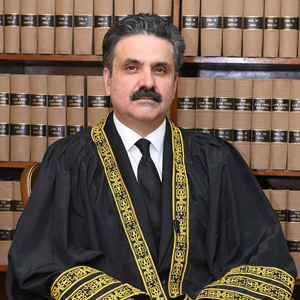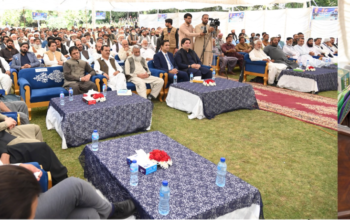Justice Yahya Afridi, currently the fourth most senior judge in the Supreme Court of Pakistan, is set to become the 30th Chief Justice of Pakistan (CJP) following a recommendation from a special parliamentary committee. If he accepts the role, he will be sworn in by President Asif Ali Zardari on October 26, serving a three-year term.
A former chief justice of the Peshawar High Court, Justice Afridi is well-regarded within the legal community for his professionalism, integrity, and fair-mindedness. He is known for maintaining a respectful atmosphere in court, encouraging lawyers to present their cases freely, even amid rigorous questioning from other bench members.
In April 2024, he recused himself from a significant case regarding alleged interference by the intelligence agencies in judicial matters. Justice Afridi expressed concern that judicial inaction should not compel the Supreme Court to assert its jurisdiction under Article 184(3), emphasizing the importance of preserving the independence of the high courts.
Background
Justice Afridi was born on January 23, 1965, in Dera Ismail Khan, belonging to the Adam Khel clan of the Afridi tribe, and resides in Babari Banda village in Kohat. He hails from a family dedicated to public service.
His educational journey began at Aitchison College and continued at Government College, Lahore, where he earned his undergraduate degree. He later pursued an MA in Economics from Punjab University. After receiving a Commonwealth Scholarship, he completed his LLM at Jesus College, University of Cambridge, and participated in a Young Commonwealth Lawyers program at the Institute of Legal Studies in London.
After interning with Fox & Gibbons, Solicitors, in London, he returned to Pakistan to work with Orr, Dignam & Co. in Karachi. He later established his private practice in Peshawar while also lecturing in international law, labor law, and administrative law at Khyber Law College.
Justice Afridi became an advocate for the high court in 1990 and was admitted to the Supreme Court bar in 2004. His career includes serving as an assistant advocate general for Khyber Pakhtunkhwa and as federal counsel for the federal government.
In 2010, he was appointed as an additional judge of the Peshawar High Court, confirmed as a permanent judge in 2012. He made history in December 2016 by becoming the first chief justice of the Peshawar High Court from the former Federally Administered Tribal Areas (FATA) and was elevated to the Supreme Court in June 2018.





